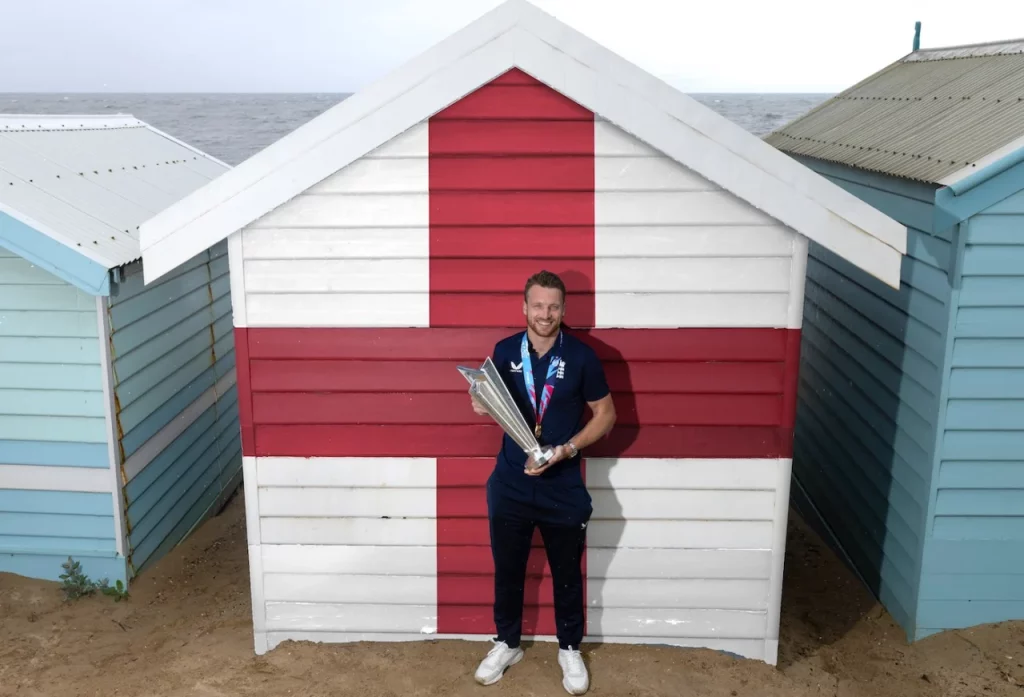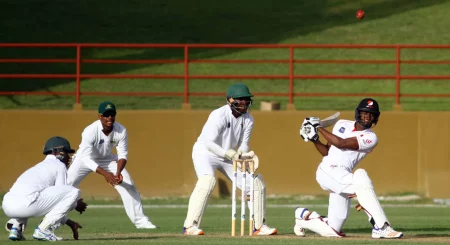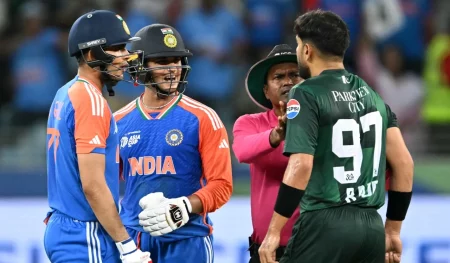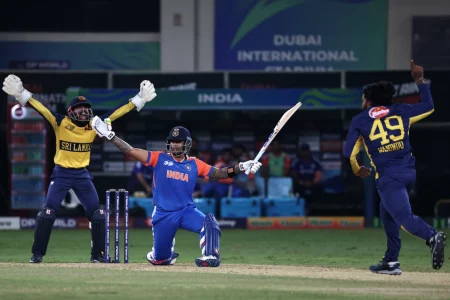All magic comes with a price whether it is spinning straw into gold or winning the final of the World Cup against the favorites. The price, although, needs not to be rendered immediately; a debt of like worth has to be cleared whenever. Jos Buttler had to pay off this debt with two shambolic World Cup defenses. Unlike fairytales, his story is expected not to end in a happily-ever-after. As the management sniffs around to find who is to blame for bottling not one, but two mega-events, many fingers point toward Buttler and his Jedi Matthew Mott.
For Buttler and, by the same token, for England, this investigation has become a touch easier with the news that the English captain has to tend to a calf injury he picked while training for his outings at the Hundred. Rob Key, the team’s managing director, now does not have to worry about filling out apology forms for Buttler, in case the new captain fails to uptake the task. All he should do is find someone to replace the 33-year-old until he is fit again and decide who the team needs to stick with. But this is not as simple as is apparent.
It has been very long since the last time England put their brains behind deciding the white-ball captain. Before Morgan retired, Jos was his second-in-command for several years and naturally succeeded him as soon as he hung his boots. However, England, as of now, are not exactly raking in candidates to grab the reins from Buttler. All of the available options (to whatever level of potentiality) have some downside to them. This is the very reason why Buttler was not sacked right after their exit from the ODI World Cup in India last year, where the Three Lions lost six out of their nine matches. But Jos’ injury has now forced the English Cricket Board (ECB) to face, however begrudgingly, this difficult question. Some names can be heard reverberating around and from the looks of it, the English management is going to pick one lucky guy from those very names.
Harry Brook:
Those who want him to replace Jos Buttler as England’s white-ball captain and those who do not, agree on the same thing: he is awfully perfect to lead the team. So perfect that the pundits have eyes on him to step into the shoes of Ben Stokes, when the latter eventually does retire from the longest format of the game. Keeping in view the number of Test matches England play, only a superhuman could manage them with white-ball games. A trick to get past this quagmire could be to find someone better or equal to lead the red-ball side. Ollie Pope or maybe any of the openers Zak Crawley or Ben Duckett. Although they don’t give off Brook’s longevity vibes, Stokes’ presence can help nurture them into decent leaders.
Sam Curran:
Young, talented, and rich in cricketing knowledge. Curran has more than what it takes to be the best man for the job. He has experience filling in for captains in franchise cricket and has been hailed as a brilliant cricketing mind by many. England can pin their hopes on him. But one thing needs to be kept in mind, the young all-rounder has not been hitting his ceiling lately. In fact, one of the reasons why England did what they did in the last two World Cups was Sam Curran’s slump in form. If he were to become the captain without getting his mojo back, he would be but a burden on the team and would have to be discarded sooner or later.
Phil Salt:
Phil Salt does not carry England’s red-ball expectations like Harry Brook. He also is not struggling with his performance like Sam Curran. In him, England get a good back-up wicket-keeper who can take the mitts from Buttler after he retires. As it so happens, he will also be the one replacing Jos as the captain of Manchester Originals in the Hundred, which gives England a chance to observe his leadership skills before making any decision. On top of it all, he has been a regular part of the limited-overs side, especially since last year after Dawid Malan’s retirement.



